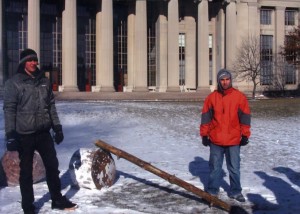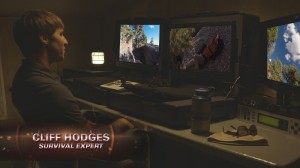Engineering Survival: Skills for the Wilderness
-
-
slice.mit.edu
Filed Under
Recommended

While at MIT, Hodges used his breaks to attend survival training camps and even taught a survivalist class during IAP 2003. “We built shelters and started fire by friction right in front of the dome,” he remembers. After Hodges graduated from MIT, he took a tech job in California, but quickly changed his mind about his career path. “It was just a bad starter job for me,” he says. And, at that job, Hodges began wondering what it would be like to work in his passion.
After a few months in the tech world, Hodges set out to launch his company, Adventure Out in Santa Cruz, CA, where he offers survivalist classes and training. In the early days of his business, Hodges says it was hard to fill the survival training classes. But in recent years as survival shows like Man vs. Wild and Naked and Afraid, have become popular, his business started booming. “It’s hard to say which came first. I think the shows are increasing demand, but that demand may be increasing interest in the shows,” he explains.

Hodges recently joined the fray of survival shows after NatGeo asked him to be a survival expert for their new show Remote Survival. On the show, untrained campers are dropped into the wild with limited gear. Hodges helps these campers survive by offering them instructions through radio communication. The job is especially difficult , he says, because the campers are constantly on the move, the worst option for survival. “Unless you’re in imminent danger, you stay put,” he explains.
These difficult situations are when Hodges makes use of his MIT background. “A degree in engineering is a degree in problem solving,” he says. “I can take these situations that seem insurmountable and break them down piece by piece.”
Remote Survival’s first mini season is on NatGeo now. Hodges is hoping to be renewed for a full season.







